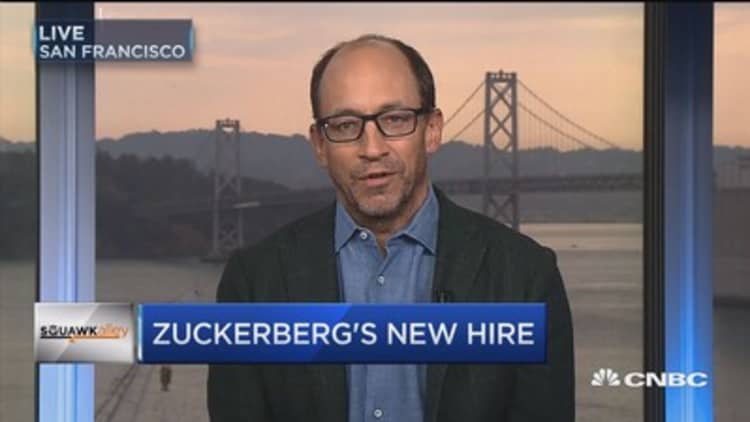President Donald Trump has backed a new immigration proposal to make immigration more "merit-based," but one technology executive said the policy could actually make it harder for American companies to compete for talent.
"We go through ridiculous interview processes to try to find precisely the right people," former Twitter CEO Dick Costolo told CNBC's "Squawk Alley" on Thursday. "They take a long time. We talk to tons of candidates, generally speaking, to find the one or two we want."
The RAISE Act, proposed by Sens. Tom Cotton, R-Ark., and David Perdue, R-Ga. and backed by Trump, would aim to make job skills a priority for people to obtain legal permanent residency. But while technology companies agree that immigration policy needs to be reformed, the RAISE Act "does not address the challenges tech companies face" and "injects more bureaucratic dysfunction," according to the Information Technology Industry Council, which counts Facebook, Google, Amazon and Apple among its members.

Immigration officials are probably not most qualified at determining who the best software engineers are to work at American technology companies, said Costolo, who now runs a fitness start-up. That makes it "problematic" and "worrisome" for an immigration policy to further limit who can be considered for interviews, according to Costolo.
"The kinds of engineers we're looking for are getting more and more specific," Costolo said. "It's not just 'a software engineer' or 'someone who understands iOS.' Folks are looking for specific kinds of machine-learning expertise, specific kinds of natural language processing expertise, specific kinds of experience with backend technology stacks."
Republicans who support the bill have pushed back against the ITIC's assertion that tech companies can't "find enough STEM-skilled Americans to fill open roles." Indeed, even some skilled immigrants who spoke to CNBC have said they support a more merit-based approach, particularly for H-1B visa reform.
Nonetheless, tech workers have also been outspoken about some of Trump's wide-ranging immigration crackdowns, arguing it runs counter to the spirit of innovation promoted by immigrants like Google co-founder Sergey Brin.
"The competition for engineers in Silicon Valley and around the world right now is extraordinary," Costolo said. "There aren't enough of them, everybody's fighting for them, we all want more. And the notion that someone else will be ahead of us in line, screening those people, and not letting us screen who we want to come work for us, is just going to make it harder for us to compete. It's just that simple."
— CNBC's Jacob Pramuck contributed to this report.
WATCH: Will RAISE Act harm or help economy?



